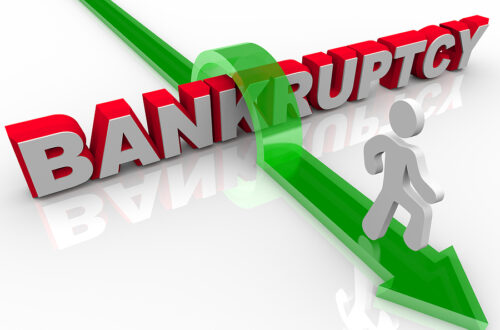Every month, there are a number of Americans who fall behind on their mortgage payments. Some homeowners are able to work out loan modifications with their lenders, but many are not. It may seem counter-intuitive, but when someone is facing foreclosure and is in the middle of a major financial crisis, bankruptcy can be a viable option to help save that person’s home. Ultimately, it depends on your specific financial situation and the type of bankruptcy you file – but bankruptcy can be used as a tool to help keep your home.
The Power of the Automatic Stay
If your home is already set for a foreclosure sale, you may be asking, “how can I make it stop?” Filing for bankruptcy can put a stop to the process or at the very least postpone it. As soon as a petition for bankruptcy is filed, the court issues an order called an “automatic stay,” which puts an immediate halt to all collection activities that were happening to the homeowner before the petition was filed. This automatic stay also applies to foreclosure cases. Creditors (including your mortgage lender) must immediately cease collection attempts. Even if the mortgage lender has the home scheduled for a foreclosure sale, the sale will be postponed during a pending bankruptcy.
How a Chapter 7 Bankruptcy can Help:
Chapter 7 bankruptcy cancels all the debt secured by the home, including mortgages and home equity loans. This type of bankruptcy also goes a step further, thanks to a new law, Chapter 7 also forgives the homeowner for tax liability for losses the mortgage or home-improvement lender incurs because of the homeowner’s default.
How a Chapter 13 Bankruptcy can Help:
If you want to stay in your home and do whatever possible to get caught up on past-due mortgage payments, a Chapter 13 bankruptcy may be the best option. A Chapter 13 bankruptcy is also known as a reorganization bankruptcy. It allows you, as the bankruptcy filer, to work with the bankruptcy trustee to create a repayment plan to catch up on qualifying payments. Chapter 13 bankruptcy plans normally last anywhere between three to five years.
Florida’s Bankruptcy Exemptions
Florida has one of the most generous homestead exemptions in the country and allows homeowners to claim an unlimited value of their primary residence (if the property is not larger than half an acre in a municipality or 160 acres in a non-municipality). To use Florida’s exemptions, you must have resided in Florida for at least 730 days before filing your bankruptcy petition.
Although bankruptcy and foreclosure can be damaging to your credit, sometimes filing for bankruptcy can be the start of rebuilding your credit because it allows you to obtain a fresh start. Foreclosure not only damages your credit, but you are left with the mortgage debt, which will likely result in creditors not considering you for future mortgages. If you find yourself facing foreclosure and are concerned about your financial future, remember that filing for bankruptcy may help save your home.
If you have questions on this topic or are in financial crisis and considering filing for bankruptcy, contact an experienced Miami bankruptcy attorney who can advise you of all of your options. As an experienced CPA as well as a proven bankruptcy lawyer, Timothy Kingcade knows how to help clients take full advantage of the bankruptcy laws to protect their assets and get successful results. Since 1996 Kingcade Garcia McMaken has been helping people from all walks of life build a better tomorrow. Our attorneys’ help thousands of people every year take advantage of their rights under bankruptcy protection to restart, rebuild and recover. The day you hire our firm, we will contact your creditors to stop the harassment. You can also find useful consumer information on the Kingcade Garcia McMaken website at www.miamibankruptcy.com.

